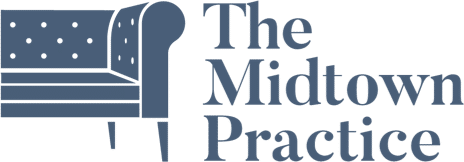A recent New York Times analysis challenged long-held assumptions about parent-child relationships in adulthood. The study revealed that despite concerns about “snowplow parents” and “failure to launch,” increased parental involvement during young adulthood might actually foster positive outcomes. At The Midtown Practice, we speak to countless parents and their adult children, and have observed instances when supportive and engaged parents are instrumental in their adult children’s personal and professional evolution, and others where they can be less helpful and even harmful. We also understand how professional support can help families navigate this evolving dynamic.
Understanding Today’s Parent-Child Dynamic
According to the New York Times article a significant shift has occurred in how generations interact. Nine in ten parents rate their relationships with their young adult children as good or excellent, with eight in ten young adults agreeing. Rather than feeling burdened by continued parental involvement, many young adults welcome the support. This represents a marked change from previous generations, where strict independence after age 18 was the expected norm.
Modern parent-child relationships often include regular texting, emotional support, and ongoing advice about finances, careers, and personal life decisions. While this level of involvement might have been viewed critically in the past, research suggests it can actually protect young adults from unhealthy behaviors and help them better cope with life changes.
The Impact on Mental Health and Development
Karen L. Fingerman, a professor at the University of Texas at Austin who studies adult family relationships, notes that these closer parent-child bonds often lead to positive outcomes. Young adults who receive significant parental support show higher life satisfaction and better ability to handle life transitions. This challenges the assumption that continued parental involvement necessarily hinders independence.
However, it’s crucial to recognize when support crosses into over-involvement. At The Midtown Practice, we help families find this balance through various therapeutic approaches. Our clinicians work with both parents and young adults to establish healthy boundaries while maintaining supportive relationships.
The Potential Negative Impact of Parental Involvement on the Development of Adult Children
Over-involvement from parents can sometimes hinder the development of adult children. When parents are excessively engaged in their adult child’s life, it can prevent the child from developing essential life skills such as problem-solving, decision-making, and self-sufficiency. This can lead to a state of “failure to launch,” where the adult child remains dependent on their parents and struggles to navigate adulthood independently. Additionally, parental over-involvement can strain the parent-child relationship and create resentment.
Notwithstanding the good intentions of parents, it can be hard to understand how much parenting is too much. When parents monitor their adult children’s lives to the point that they remove their autonomy, their adult children are at risk for depression and anxiety. This can occur when parents are intrusive in an age inappropriate manner, such as constantly monitoring their children’s location, calling professors or employers when they feel their child was treated unfairly, or interfering in their child’s social life.
When Professional Support Can Help
There are several situations where therapeutic intervention can be particularly beneficial:
- When families struggle to establish appropriate boundaries while maintaining closeness
- During major life transitions, such as starting college or entering the workforce
- If either generation experiences anxiety or depression related to the relationship
- When communication patterns become strained or ineffective
- If financial dependency creates tension or uncertainty
Our approach at The Midtown Practice focuses on helping families develop their own balanced framework for interaction. Through individual therapy, family sessions, or parent coaching, we work to enhance communication while supporting individual growth and autonomy.
Cultural and Economic Factors
The Times article highlights how cultural and economic factors influence these relationships. Student debt, delayed homeownership, and changing social norms all play roles in extended parent-child interdependence. Rather than viewing this as problematic, we help families understand and adapt to these modern realities while maintaining healthy relationships.
Moving Forward Together
The key is finding a balance that works for your family’s unique situation. At The Midtown Practice, we offer both in-person appointments at our Midtown Manhattan location and telehealth options to support families in navigating these relationships. Our experienced clinicians can help you develop strategies for maintaining strong family bonds while fostering individual growth and independence.
Whether you’re a parent concerned about maintaining appropriate boundaries or a young adult seeking to navigate family dynamics while building independence, we’re here to help. Contact us at 212-286-8801 or info@midtownpractice.com to schedule a consultation and begin working toward healthier family relationships.
Remember, seeking support isn’t a sign of relationship problems – it’s a proactive step toward creating stronger, more resilient family bonds that can benefit both parents and adult children in today’s complex world.
Frequently Asked Questions
Q: At what age should parents stop being involved in their adult children’s lives?
A: There’s no specific age when involvement should end. The key is ensuring the involvement is supportive rather than controlling, and that it evolves to respect the adult child’s growing independence and autonomy.
Q: How can I tell if I’m being too involved as a parent?
A: Signs of over-involvement include making decisions for your adult child, solving problems they should handle themselves, or feeling anxious when you’re not in constant contact. If your child expresses feeling suffocated or unable to make independent decisions, it may be time to reassess boundaries.
Q: Is it normal for my adult child to still need emotional support from me?
A: Yes, emotional support throughout adulthood is normal and healthy. The difference lies in providing support while encouraging independence, rather than creating dependency or solving all their problems for them.
Q: How can family therapy help with parent-adult child relationships?
A: Family therapy can help establish healthy communication patterns, set appropriate boundaries, and navigate the transition from a parent-child dynamic to a more adult-to-adult relationship while maintaining closeness.
Q: What if my adult child doesn’t want my help but I’m worried about them?
A: It’s important to respect their autonomy while expressing your concerns appropriately. A therapist can help you navigate how to offer support without overstepping boundaries or creating conflict.
Sources
Goldberg, E. (2024). The new parent-child relationship: When helicopter parenting might actually help. The New York Times. Retrieved from https://www.nytimes.com/2020/04/15/parenting/helicopter-parenting-problems.html
Fingerman, K. L., Cheng, Y. P., Wesselmann, E. D., Zarit, S., Furstenberg, F., & Birditt, K. S. (2012). Helicopter parents and landing pad kids: Intense parental support of grown children. Journal of Marriage and Family, 74(4), 880-896.
Padilla-Walker, L. M., & Nelson, L. J. (2012). Black hawk down?: Establishing helicopter parenting as a distinct construct from other forms of parental control during emerging adulthood. Journal of Adolescence, 35(5), 1177-1190.
Schiffrin, H. H., Liss, M., Miles-McLean, H., Geary, K. A., Erchull, M. J., & Tashner, T. (2014). Helping or hovering? The effects of helicopter parenting on college students’ well-being. Journal of Child and Family Studies, 23(3), 548-557.
Arnett, J. J. (2000). Emerging adulthood: A theory of development from the late teens through the twenties. American Psychologist, 55(5), 469-480.
LeMoyne, T., & Buchanan, T. (2011). Does “hovering” matter? Helicopter parenting and its effect on well-being. Sociological Spectrum, 31(4), 399-418.
Nelson, L. J., Padilla-Walker, L. M., Christensen, K. J., Evans, C. A., & Carroll, J. S. (2011). Parenting in emerging adulthood: An examination of parenting clusters and correlates. Journal of Youth and Adolescence, 40(6), 730-743.



